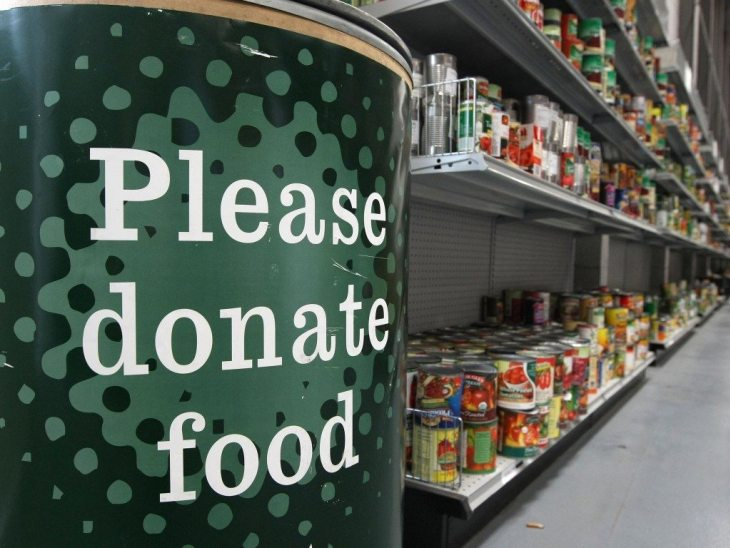
The Gauteng Department of Social Development will reinstate the food bank model and retain the current food bank infrastructure operations, MEC Nandi Mayathula-Khoza announced on Monday.
The announcement follows an abrupt closure of food banks and termination of funding to food relief cooperatives that supply necessities, including school uniform and dignity packs, to communities.
The sudden closure of the food banks followed fraud detected by Treasury. It was then recommended that food banks be closed down for a full forensic investigation to take effect.
Classification Circular 21 from National Treasury recommends that the department no longer directly transfer funds straight to Non-Profit Organisations (NPO) to buy goods and services. The circular says there is a need for the reclassification of all goods and services to be procured via the supply chain management system.
Mayathula-Khoza said while the department recognises the seriousness of the issues raised in the fraud detection review report and that the officials are fully co-operating with the full forensic investigation, the problems must be isolated and dealt with decisively.
Preserving Sustainable Livelihood Programme
The MEC maintained that Sustainable Livelihood Programme and related projects must be preserved as a vehicle for empowering vulnerable groups of people, particularly youth, women, children, HIV and Aids patients, older and frail people, as they work together to eradicate poverty.
“The abrupt introduction of the Classification Circular 21 by National Treasury in the middle of the financial year, and the decision by the Auditor General of South Africa to apply it retrospectively to the [2017/18 financial year] has thrown the sector into chaos, countrywide – and certainly affected service delivery in a negative way.
“It is also the view of the social development sector that the implementation of the classification circular will have dire consequences on the poor people, if it is only interpreted and understood from an accounting point of view, and not within the context of what the Accelerated Social Transformation and sustainable livelihood agenda is all about.
“We note with regret that as a result, the food banks have ceased to operate, the dignity packs programme has halted and the process to accredit cooperatives for the production of school uniform had to be stopped – all… due to the forensic detection recommendations and the Classification Circular. We are further saddened by the fact that a lot of jobs, which depended on these projects and funding from government, have been compromised or lost,” Mayathula-Khoza said.
She said the procurement of food supplies will, however, for now be retained within the Supply Chain Management (SCM), until all other matters have been resolved.
In implementing this decision, the MEC said the department was aware of the fact that the cost of procuring food supplies through SCM could prove to be expensive, which may impact on the current budgets or lead to a reduction of service delivery targets in certain instances.
“This must, however, be done to mitigate the risks identified in the fraud detection review report. Again, in implementing this decision, all efforts will be made to ensure that issues raised in the fraud detection review report are addressed. Legal advice will be sort and where necessary, we will continue to engage each other in Gauteng government to ensure that any possible non-compliance is managed upfront,” Mayathula-Khoza explained.
School Uniform Project implementation
Mayathula-Khoza also announced that the implementation of the School Uniform Project will proceed using the old approach of working with sewing cooperatives, in accordance with the Policy on Financial Awards.
“We must be ready to distribute school uniform to over 151 000 learners by the beginning of the 2019 school term. The school uniform will be produced by over 490 cooperatives, and the department will invest over R147 million on these vehicles of community empowerment,” the MEC said.
Dignity Packs Programme reinstated
The Dignity Packs Programme will be reinstated based on the old approach, in line with the Policy on Financial Awards.
“Shortly, we will commence with the packaging and distribution of over 306 000 dignity packs per quarter, benefiting over 102 000 mostly girl learners per month, including hats and sunscreen for children with albinism,” Mayathula-Khoza said.
Other programmes affected
Mayathula-Khoza said the department also noted with concern that there are other programmes affected mainly by the classification circular, which have been halted.
These include the Welfare to Work Programme; non-centre based services for Early Childhood Development (ECD), including mobile ECD services, toy libraries, new infrastructure and renovations of crèches, community based child and youth care services, including Isibindi Training Programme.
“We remain committed to the principles of clean governance and an environment free of fraud and corruption. We also remain committed to the maintenance of a clean audit status, which we have achieved for six years in a row now.
“Equally so, we remain committed to our accelerated social transformation agenda, and the protection of our vulnerable people.”
SAnews.gov.za